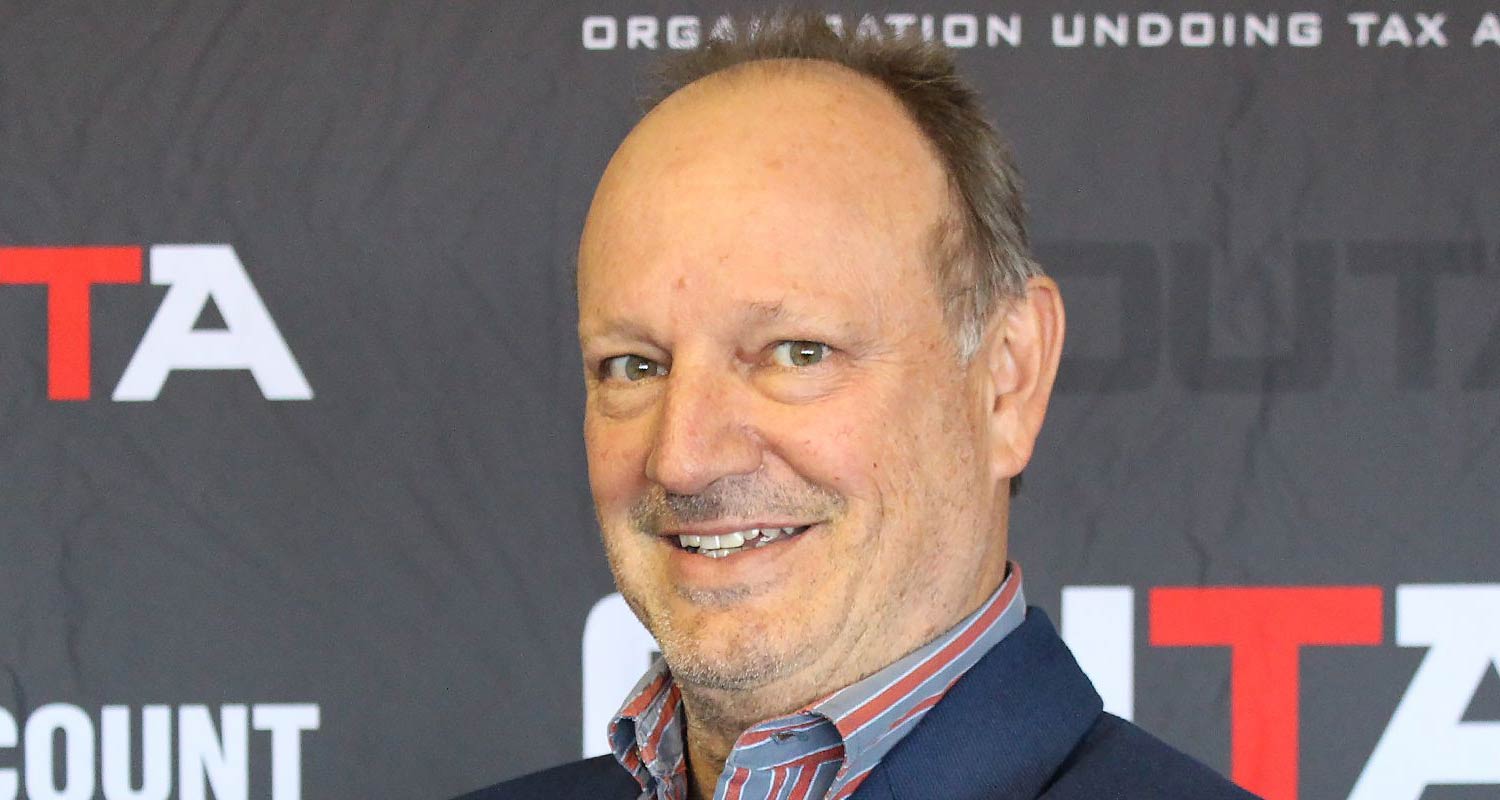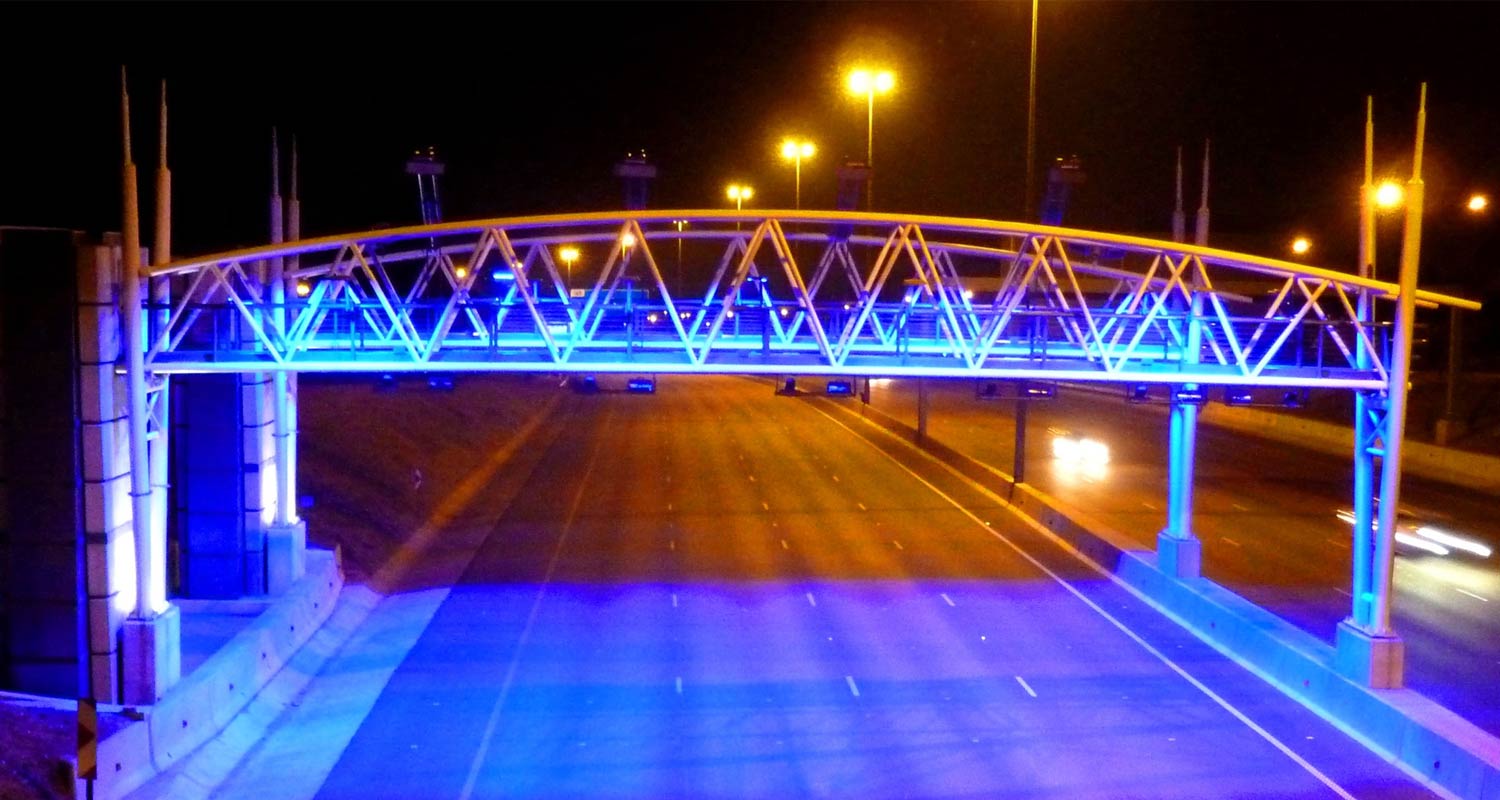
Outa was founded in March 2012. At the time, the Opposition to Urban Tolling Alliance – as it was known originally, before a 2016 name change – was focused exclusively on halting government’s decision to introduce e-tolls in Gauteng – a battle it finally won on 11 April 2024.
This was when minister of transport Sindisiwe Chikunga announced that Gauteng Freeway Improvement Project (GFIP) roads would no longer be toll routes.
“Outa was formed to tackle the irrational scheme and the constitutional concerns arising from government’s decision to introduce an e-toll scheme to Gauteng’s upgraded freeways. It has been a long road, but now we can officially celebrate the end of e-tolling in Gauteng,” said Outa founder and CEO Wayne Duvenage.
A BSc graduate of the University of KwaZulu-Natal, Duvenage worked in the travel and tourism industry for 25 years, and was CEO at rental car company Avis for five years, until 2012.
He also spent a few years on the board of the Tourism Business Council and chaired the car rental industry body, the Southern African Vehicle Rental and Leasing Association.
Shutting down e-tolls was a multi-pronged battle, though, fought through the courts and official inquiries, on social media, in protest action on the highways and outside government offices, in the media, and in parliament.
Outa executive director of the accountability division Stefanie Fick said: “For us, this is the end of e-tolls but it’s not the end of the story. It is important for us to finalise all the legal cases that are still on the roll, and we are corresponding with Sanral (the national roads agency) to establish the way forward.
‘Still a mystery’
“We want to know if they are withdrawing the matters [before the courts] and whether they are going to tender costs. Also, there are some practical issues. Will historic debt (not the court cases but the debt in your name) fall away? In other words, if I have e-toll debt, will I now be able to use my e-tag for the long-distance tolls without paying for outstanding e-toll debt first?
“The Gauteng Freeway Improvement Project debt is also still a mystery – why does Gauteng have to pay it?” Fick asked.
The Opposition to Urban Tolling Alliance became the Organisation Undoing Tax Abuse in 2016, with its mandate expanded to tackle government corruption and maladministration, while still pursuing its founding objective of fighting e-tolls.
Read: E-tolls scrapped – the gantries are coming down
Of the R5.6-million raised to deal with the litigation that unfolded between 2012 and 2013, 80% was funded by big business and 20% from individuals. Before long, though, the state had placed pressure on Outa’s business funders (largely the car rental companies) to cease their financial and moral support.
 This left Outa in a precarious financial position, facing R3-million in outstanding legal bills and other debt. A public appeal for donations resulted in R2.5-million raised by civil society. The public and smaller businesses stepped into the breach, and Outa resolved to pursue a broader mandate to oppose the many manifestations of government corruption.
This left Outa in a precarious financial position, facing R3-million in outstanding legal bills and other debt. A public appeal for donations resulted in R2.5-million raised by civil society. The public and smaller businesses stepped into the breach, and Outa resolved to pursue a broader mandate to oppose the many manifestations of government corruption.
The organisation now has numerous projects investigating a broad range of fraud, corruption and racketeering issues. It wants to ensure that the state capture corruption that occurred during the tenure of former President Jacob Zuma never reoccurs.
Fick said tthere are various projects that Outa is dealing with today, including:
- Problems at the National Student Financial Aid Scheme, the government bursary scheme which provides undergraduates with financial aid to fund their tertiary studies;
- Alleged corruption at the Sector Education and Training Authorities (Setas) and the department of higher education;
- A court case related to the Karpowership gas-to-electricity ship project;
- Court cases and the details of the contracts (and financial flows) Sanral entered into with toll road concessionares Bakwena, N3TC and Trac;
- A parliamentary oversight project co-funded by the EU in partnership with OpenUp and PMG; and
- Addressing the water supply crisis with WaterCAN and JoburgCAN.
Outa has also opened various criminal complaints with the police and made direct referrals to the National Prosecuting Authority.
These include a call for investigation into payments made to Ben Martins (deputy minister of public enterprises at the time) from a business run by the Guptas and from the controversial then CEO of Prasa, Lucky Montana.
SAA, Transnet
In July 2019, Outa and the SAA Pilots’ Association opened the delinquent director case against former SAA chair Dudu Myeni; and in the same year, referred a case against the former Transnet board and officials, implicating 23 people, including Malusi Gigaba, Brian Molefe, Anoj Singh and Siyabonga Gama in corrupt deals to buy locomotives for Transnet. Outa has since met with the NPA and provided assistance to international law enforcement agencies on this matter.
Outa has published five annual reports on parliament’s oversight of government and the executive – all five have found this oversight to be “woefully inadequate”. As examples, it cited the Prasa board failing to turn up to parliamentary committee meetings; the “illegal and secret” nuclear deal with Russia, which wasn’t overturned by parliament but by the high court. The inquiry into the mineral resources department – and its then minister – and illicit involvement with the Guptas’ acquisition of a coal mine which floundered when the minister failed to show up.
The portfolio committee on communications managed to find that then communications minister Faith Muthambi should face criminal charges, but instead of taking that further, it merely passed this on to the committee on ethics, which did nothing about it. The committee looking into Denel’s deals with the Guptas mixed up the names of the companies involved, Outa said.
 Outa has become the watchdog any democracy needs to keep it within the guardrails; but it will probably always be best known for its biggest and longest campaign, which ran for an astonishing 10 years and was crowd-funded by thousands of supporters: fighting e-tolls.
Outa has become the watchdog any democracy needs to keep it within the guardrails; but it will probably always be best known for its biggest and longest campaign, which ran for an astonishing 10 years and was crowd-funded by thousands of supporters: fighting e-tolls.
“This is a massive victory for civil society,” said Duvenage. “This victory is a significant message to government never to ignore the voice and the power of the people.” — © 2024 NewsCentral Media




